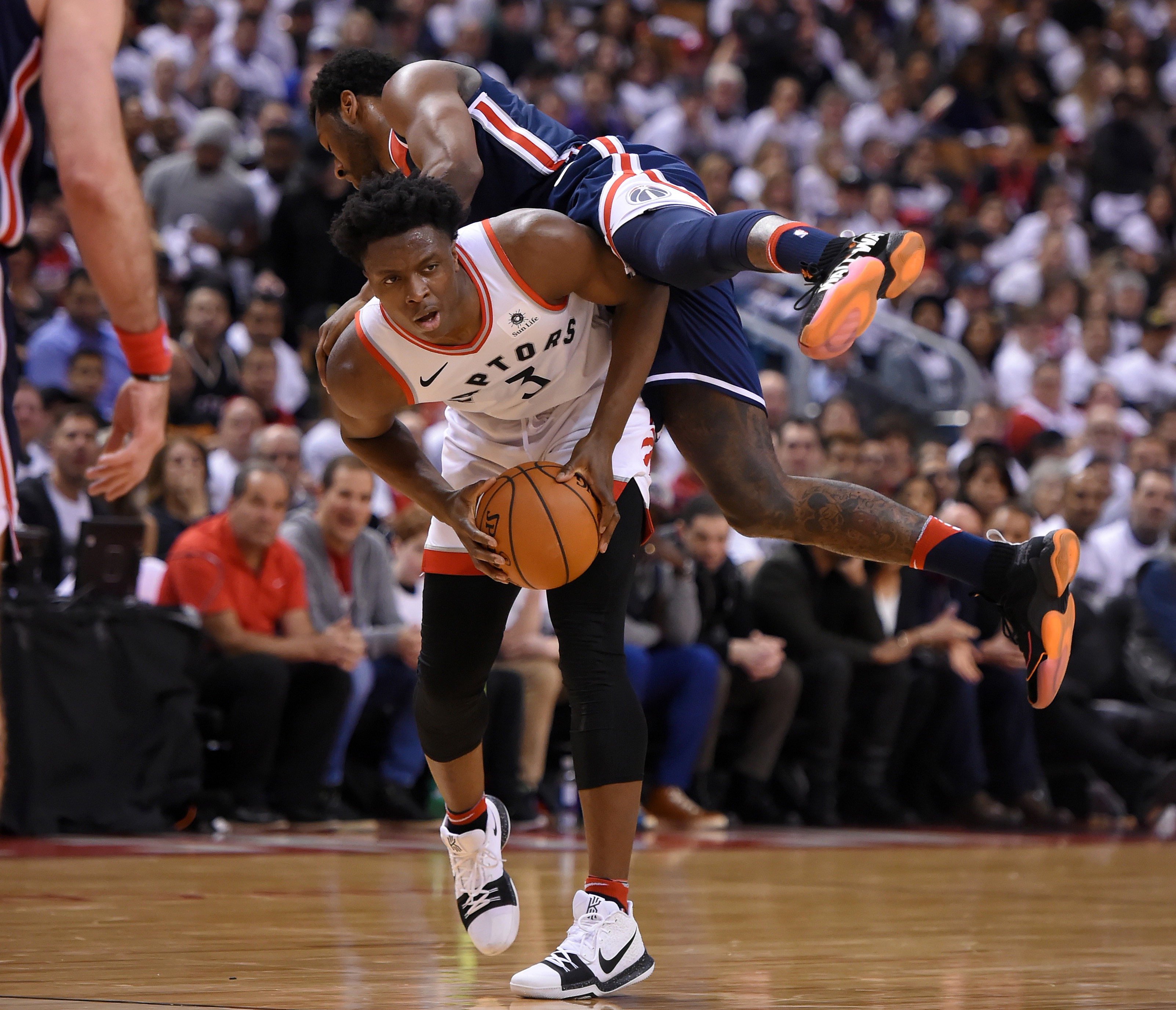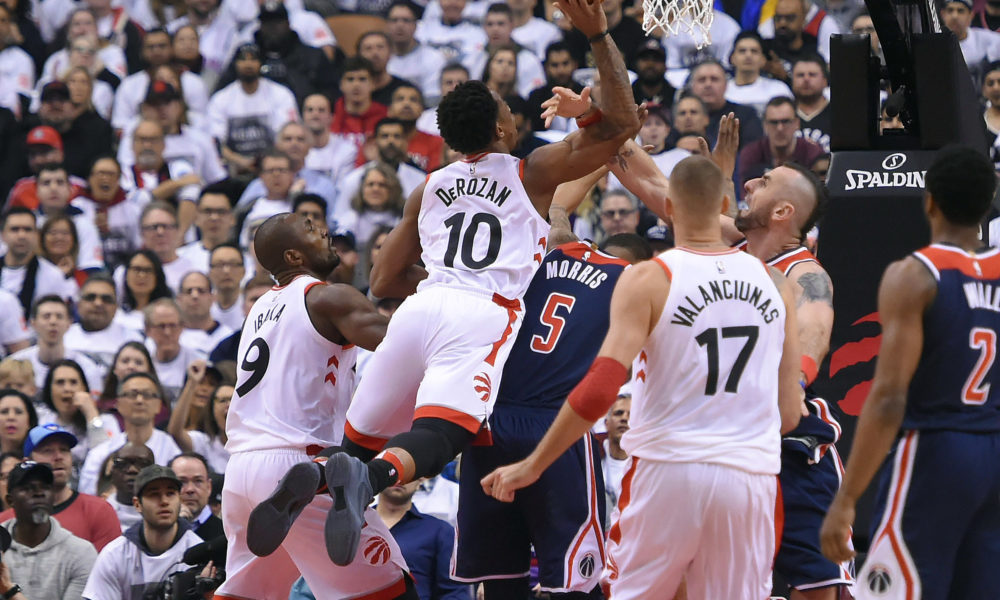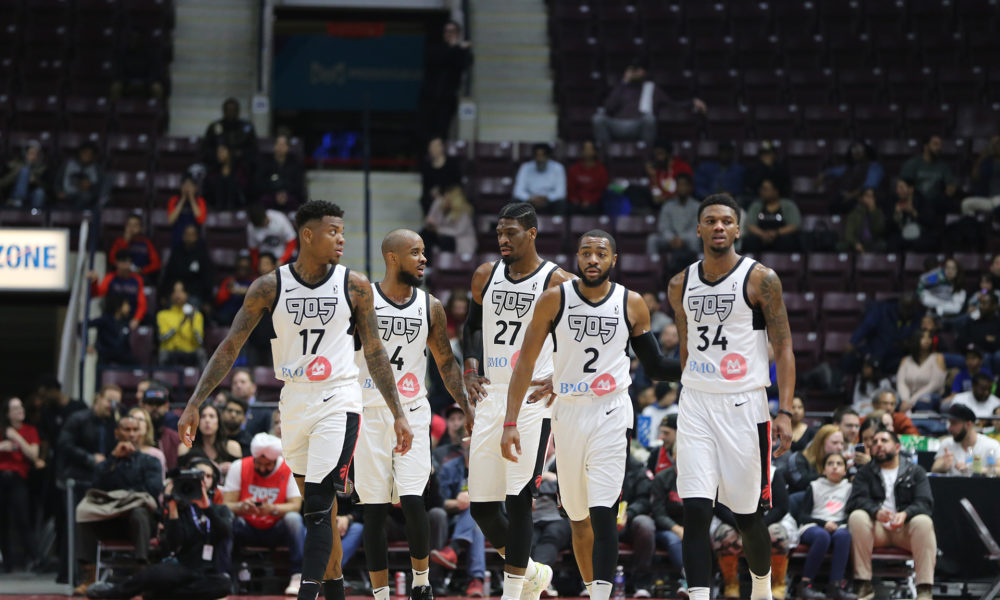The Washington Wizards came into game one of their first round series with the Toronto Raptors with a clear idea of what they wanted to do. The Raptors had struggled to get started in series in the playoffs in the franchise’s history, and in their recent history, slowing down their All-Star backcourt had been the recipe for success for opponents. It’s a straightforward strategy that had created long, difficult playoff series for the Raptors, even when they did eventually move on to the next round, and had allowed the Cleveland Cavaliers to defeat them in each of the last two years.
Washington brought that again, frequently trapping DeMar DeRozan and Kyle Lowry, and building their defensive strategy around forcing the other Raptors to beat them. It was clear that they were going to put the Raptors “culture change” to the test, find out whether the two leaders of the first seed were truly committed to the new system that emphasized ball movement and taking advantage of the matchups offered by the defense, or whether they would revert to trying to get their own numbers, and trying to win the game through their own exceptional offensive abilities. This was the question that Raptors fans had been asking all season, and the answer had been complicated. At the start of the year, the Raptors had a tendency to run the new offense for three and a half quarters, and if the game wasn’t won, they would then go back to their old habits and force a lot of isolation and tough shots, and they at times struggled to close out games because of that, with the offense slowing down and the rest of the roster left uninvolved.
As the season went on, those things shifted, and the clutch offense became more varied, emphasizing DeRozan and Lowry when they had good matchups or one of them had their game rolling, but also involving others frequently, and finding more success through that approach. This was a little more complicated in game one with Fred VanVleet out, because he had usually shared the court during those closing minutes, and his steady hand had helped to keep everyone involved and find the best avenues to attack the defense that the Raptors faced on any given night. In the first half last night, the team didn’t have a clear answer to how they would fill those minutes left by Fred’s absence, and Norman Powell struggled as a replacement. Norm’s talents lie more in his exceptional athleticism than in the controlled confidence of VanVleet, and the other bench players didn’t seem as comfortable with Norm playing beside Delon.
Even without Fred though, in the first quarter it was OG Anunoby, Serge Ibaka, and Jonas Valanciunas combining for 21 points as they took advantage of the attention afforded their team’s stars to find openings to establish a lead, and DeRozan and Lowry were both more than comfortable to let their teammates find their comfort. With the bench units, it was Delon Wright and CJ Miles in this game, although VanVleet, Pascal Siakam, Jakob Poeltl and Bebe are all capable of scoring outbursts as well, even if none of those guys was called upon to have that impact last night.
In the third quarter it was DeMar DeRozan shaking loose for twelve points as he managed to get away from the tough coverage that he saw most of the night for a stretch, but when the Raptors pulled away in the final frame it was once again Wright and Miles carrying most of the offensive load as they were afforded space by the attention drawn by the Raptors All-Stars to find opportunities.
The big question with the Raptors culture change was always whether it could continue once the postseason showed up, whether those stars would share the stage and the burden with the players around them, as in past years the Raptors had focused more on those two guys carrying the offense when the playoffs started, and the role players around them had often wilted both in the reduced roles and in the spotlight. At least through one game this year, the young supporting cast didn’t look bothered one bit by the moment, and DeRozan and Lowry also showed confidence in them, and the Raptors won through because of that. All the more impressive that they did this without VanVleet, who makes the bench that much more dangerous for Toronto, and brings another weapon that they can use in clutch minutes.
As the playoffs progress, if the Raptors keep showing this confidence in their depth, it’ll be interesting to see how defenses adapt. Do they abandon the traps in favor of taking away the supporting cast, and force DeRozan and Lowry to beat them against single coverage, or do they keep challenging the Raptors role players? Neither option looks great for a Raptors opponent, and that’s why this Raptors team is so much more dangerous than the teams of years past.



